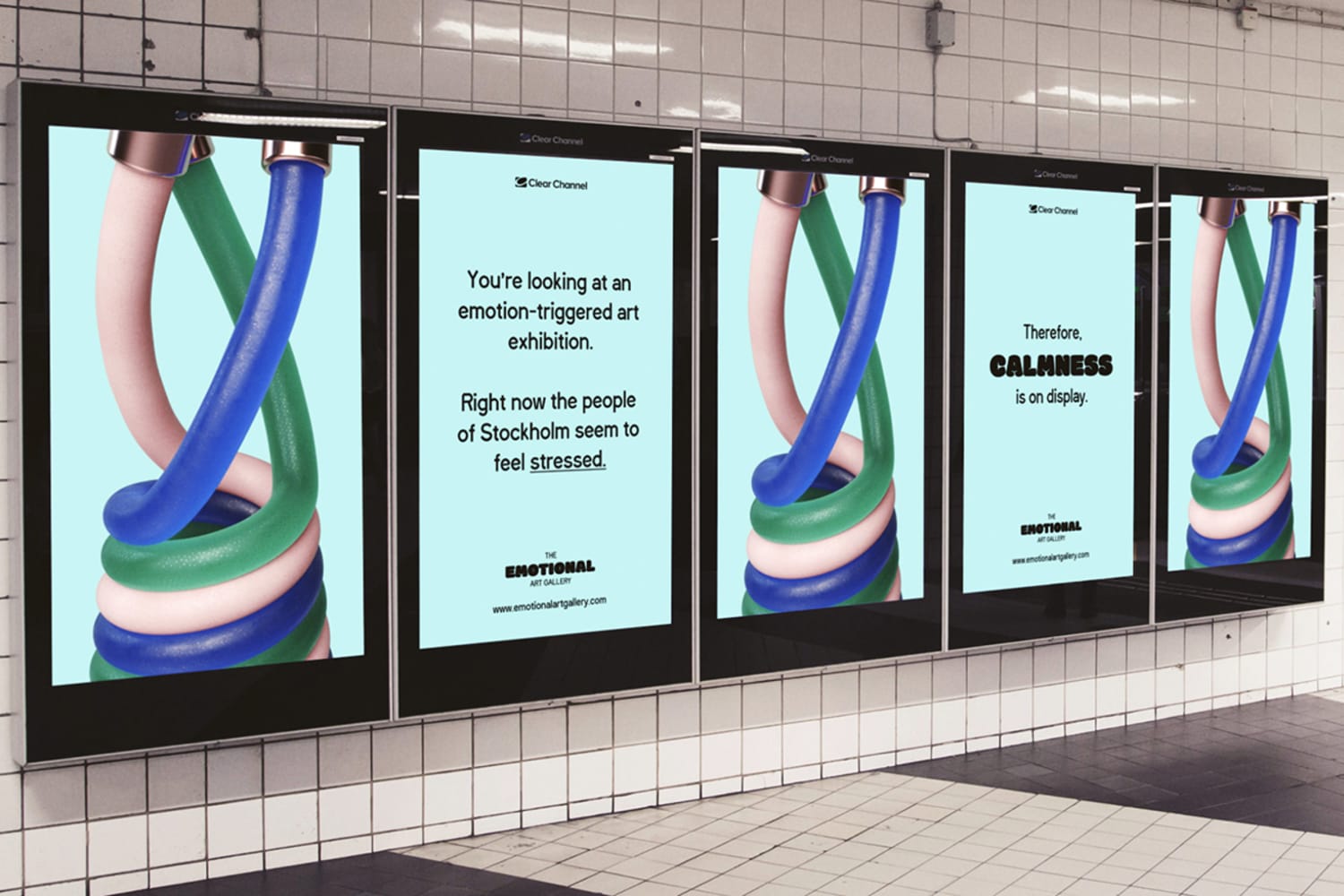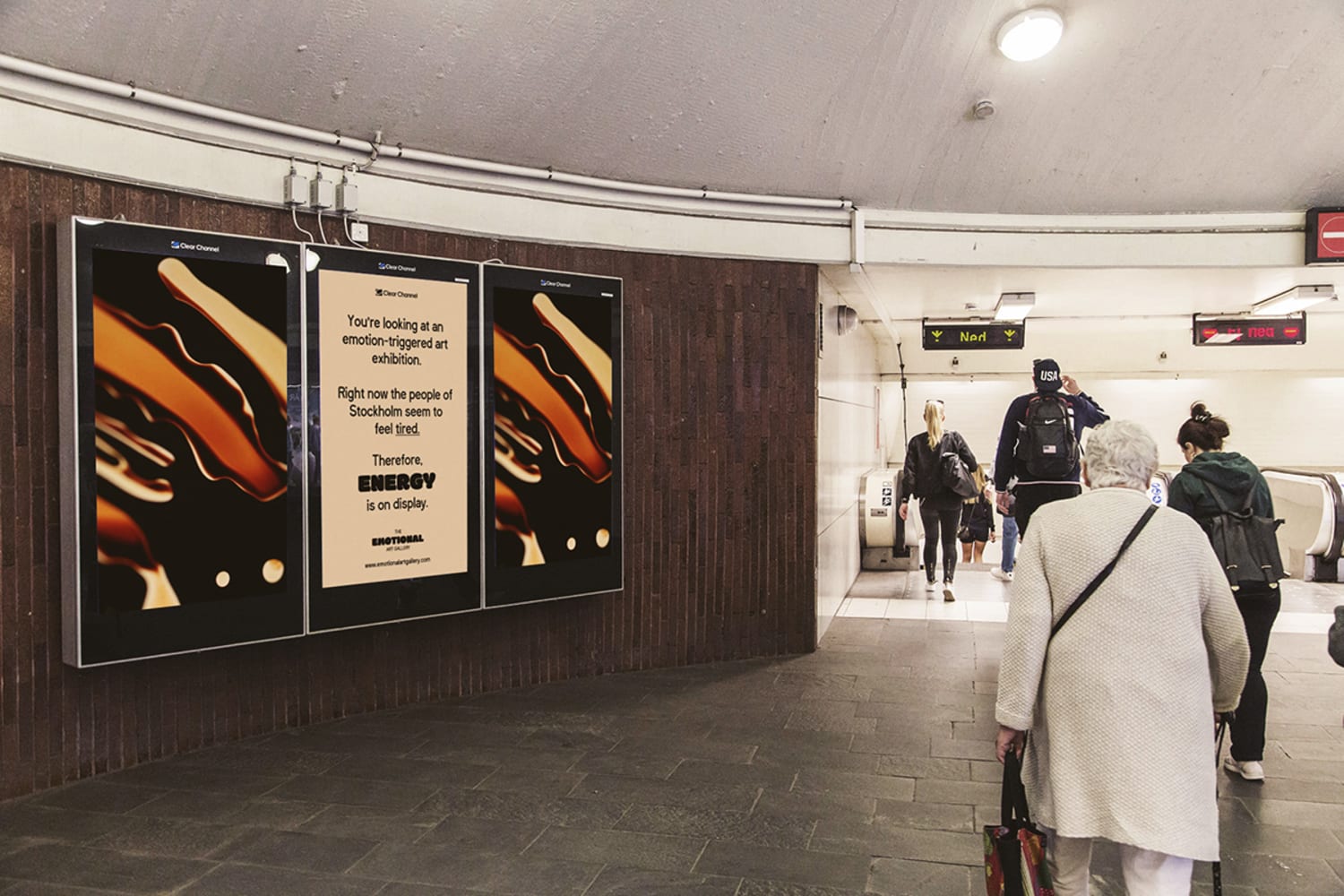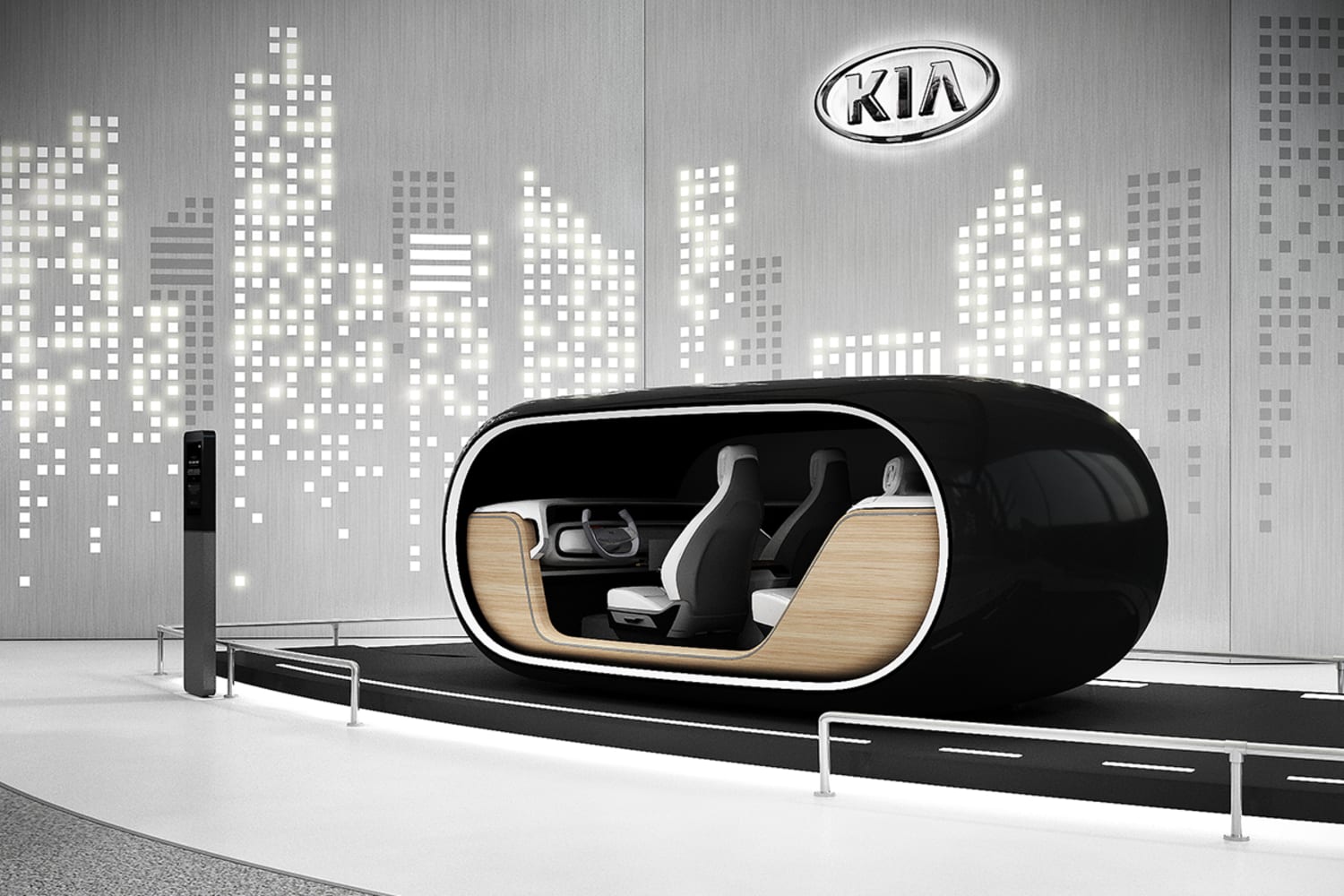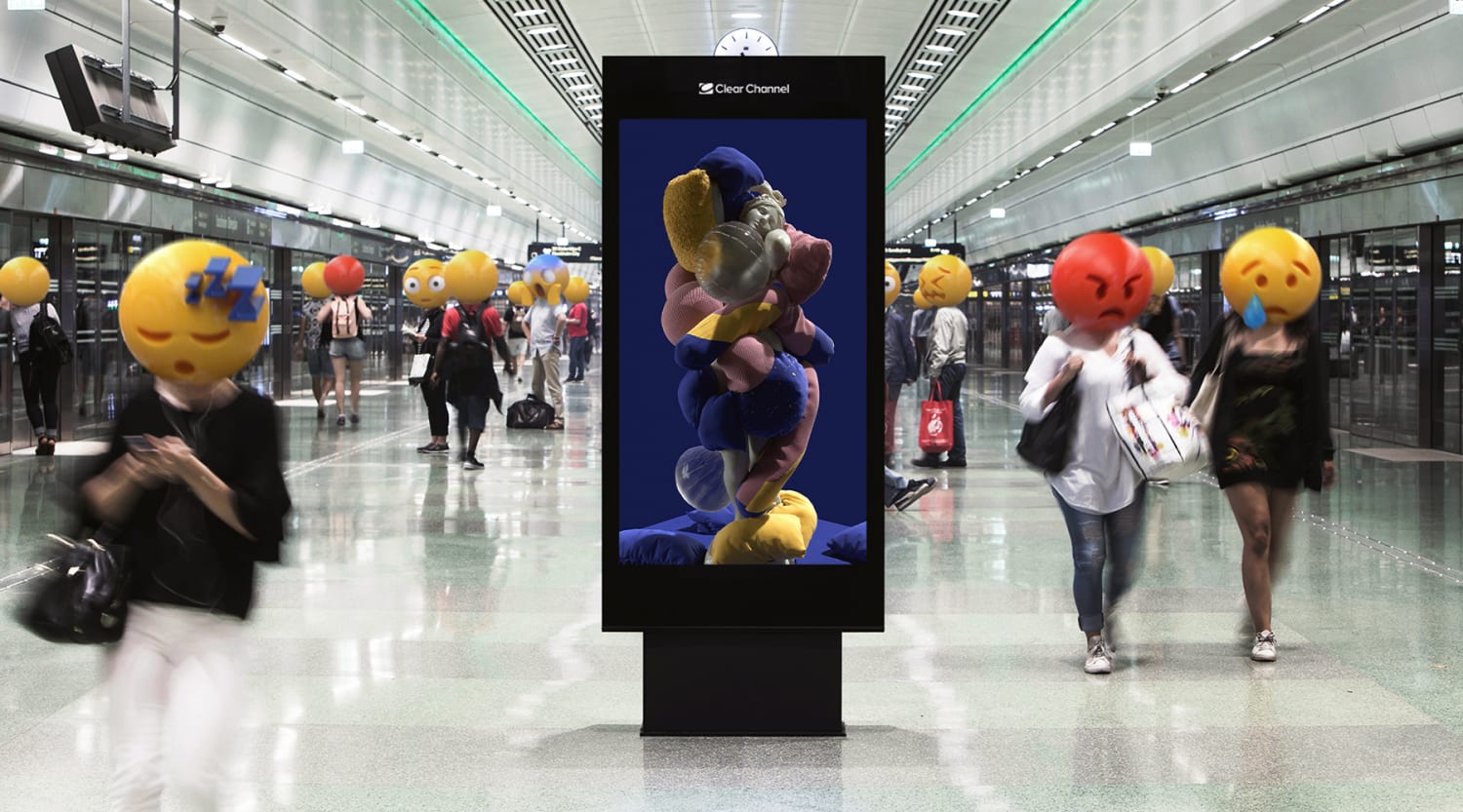According to recent research from Which?, almost half of commuters in the UK find traveling by trains stressful. Not surprising, considering that commutes of 20 minutes or more can lead to chronic stress and burnout, according to research from the University of Montreal. This is increasingly an issue given that average commutes are getting longer. In response, innovative companies are using real-time emotion detection and artificial intelligence (AI) to combat stress and bring a sense of wellbeing and calm to travel environments.
Cutting-edge responsive systems are tailoring travelers' environments to their emotional states.

Clear Channel Sweden is leveraging urban data to create an “emotion-triggered art exhibition” that helps soothe travelers. “Imagine walking into a museum where the entire exhibition is adapted in real-time to make you feel good,” said Antonia von Euler-Chelpin, founder of Young Art, a platform for emerging artists that consulted on the project. The Emotional Art Gallery, which was on display across Stockholm’s metro system from March 7-24, 2019, synthesized real-time, publicly available data from Google searches, social media, news articles and traffic information to determine the mood of the city.

“All companies follow current news events and trends as research for their communication. So, we thought why not use this type of real-time data as a new kind of creative input,” said Clear Channel chief content officer Finn Wikander. The system then used the data to select and display artwork meant to combat commuter stress and anxiety across 250 of Clear Channel’s connected screens. Six artists contributed to the exhibition, with bespoke pieces created to induce feelings of energy, love, peacefulness, calmness, happiness, comfort and safety.

South Korean automotive company Kia is also working to tackle travelers’ stress levels with their Real-time Emotion Adaptive Driving (R. E. A. D.) system. The system, which Kia previewed at CES in January 2019, monitors the driver’s emotions using bio-signal recognition technology. The AI-based system analyses facial expressions, heart rate and electrodermal activity to determine emotional state and then adjusts the interior of the car – such as lighting or music – to improve the driver’s state of mind.
“The [R. E. A. D.] system enables continuous communication between driver and vehicle through the unspoken language of ‘feeling’, thereby providing an optimal, human-sense oriented space for the driver in real-time.” says Albert Biermann, President and Head of Research & Development Division of Hyundai Motor Group. By adapting the interior of the car to an individual driver’s needs, Kia can improve the overall driving and reduce stress.

Traveling through airports is also anxiety-inducing: 97% of US fliers report being frustrated by air travel. Airports like Istanbul New Airport in Turkey are aiming to improve travelers’ experiences with new emotion detecting robots. Nely, a social robot from Turkey-based Human Age Technology, can provide information to travelers about traffic, gates and weather forecasts all while reading users’ emotions and reacting accordingly. The creators hope that by having the robot respond to emotions, interactions will be more useful and enjoyable for people and will decrease travel stress.
While technology that detects and reacts to emotions can certainly help improve commuters’ wellbeing, it is not without consequence. Going forward, brands must be cognizant of privacy concerns. Security systems that use facial recognition, for example, pose ethical questions, especially as these systems gain traction among U. S. retailers. On top of that, technology capable of passive emotional manipulation should be used with care. Opting in is going to become more important than ever.
As technology improves, brands are beginning to actively use it to improve not only our journeys but our overall wellbeing. By reducing stress, companies can make themselves an invaluable part of our everyday lives – as long as privacy is respected.
Please provide your contact information to continue.
Related Content

VML Prague and KitKat offers a digital break with its new "Phone Break" campaign

